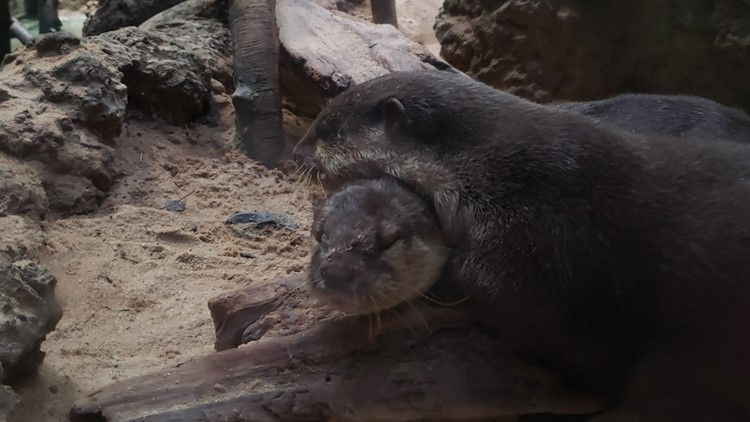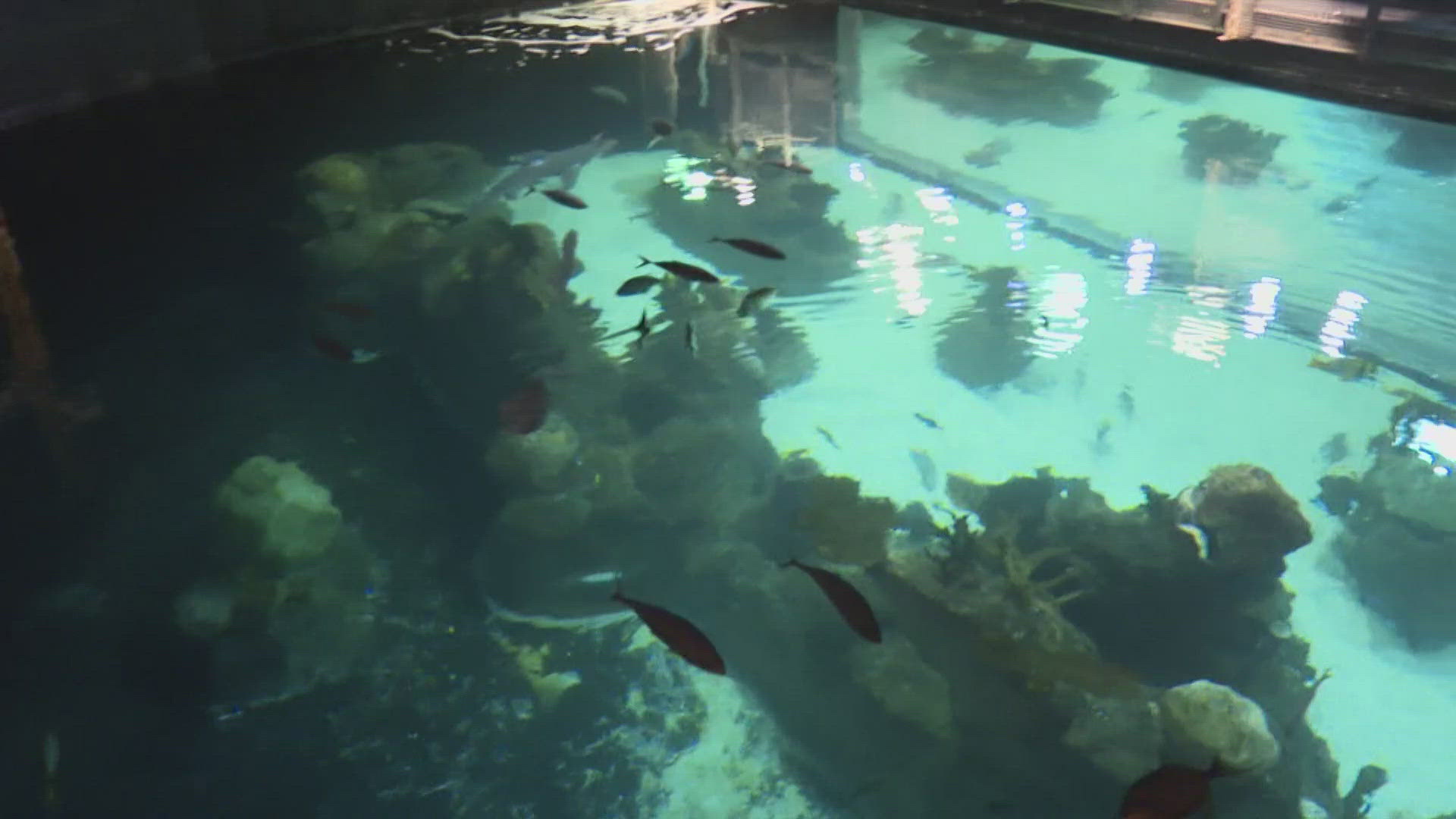GREENSBORO, N.C. — An Asian small-clawed otter named Olin was euthanized recently, according to the Greensboro Science Center.
The center said Olin wasn't able to recover from emergency surgery before they decided to humanely put him to sleep.
He came to the center in 2009 from Disney's Animals Kingdom and turned 18 on May 9. He was moved to the Wiseman Aquarium in 2013.
A statement from Greensboro Science Center:
As he grew older, Olin was a laid-back individual, which is a sharp contrast to his mate of several years, Jelly. He took many naps and ate numerous shrimp, his favorite activity. Olin was extremely smart and had more learned behaviors than any of our other otters. He could also be very stubborn and picky with his diet and was an expert at detecting any hidden medications or supplements in his food. Olin was an outstanding ambassador for Asian small-clawed otters and he will be dearly missed by me and especially Jelly. I do not doubt that he has helped countless individuals learn more about otters and inspire the next generation to work at preserving this unique species. We want to thank the GSC's vet team, animal care staff, the NC State College of Veterinary Medicine & Veterinary Hospital, and Dr. Tara Harrison for assisting us with Olin's procedures. Olin will certainly be missed by all of our staff.
More about Asian Small-Clawed Otters
Asian small-clawed otters are classified as vulnerable through the IUCN.
They are native to much of Southeast Asia and southern India. They are the smallest of otter species, averaging 2 -5 kgs, and are known for their dexterous front paws that they use for hunting and collecting food.
Wild populations of small-clawed otters have been decreasing with their main threats attributed to loss of habitat, pollution, and the illegal pet trade.
The average lifespan in human care is around 12 years for this species, so Olin far outlived his expected years.
MORE WAYS TO GET WFMY NEWS 2
Subscribe to our daily newsletter Let’s Get 2 It!
Download the WFMY News 2 APP from your Apple or Google Play store.
ADD THE WFMY+ APP TO YOUR STREAMING DEVICE
ROKU: Add the channel from the ROKU store or search for WFMY.
Amazon Fire TV: Search for WFMY to find the free app to add to your account. You can also add the app directly to your Fire TV through your Amazon account.



